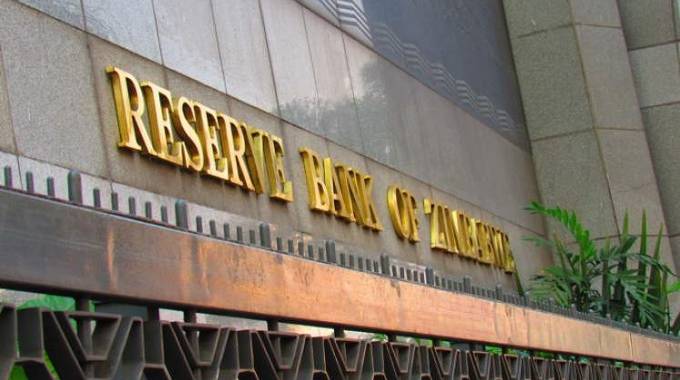
Godknows Hofisi
This article is further to the one I wrote on 27 May 2021 titled “Overview of Exchange Control Regulations”. In that previous article I listed some measures, such as controls over imports and exports, used by Government to influence inflows and outflows of currency to avoid exchange rate volatility.
I also explained the exchange control regulatory framework in Zimbabwe which include the following:
Exchange Control Act (Chapter 22:05) (the Act) which is the principal Act and more importantly section 2 on the regulatory powers of the President,
Exchange Control Regulations, 1996 (Statutory Instrument 109 of 1996) (Regulations of 1996), issued by the President in terms of section 2 of the Act,
Exchange Control (General) Order, 1996 (Statutory Instrument 110 of 1996) (General Order), issued by the Reserve Bank of Zimbabwe (RBZ) with the approval of the Minister,
Directives, circulars and orders, issued by the RBZ to supplement the provisions of the general order, in terms of section 35 of the said regulations of 1996.
Readers are advised that the exchange control regulatory framework (the exchange control regulations for simplicity) is dynamic as laws are changed from time to time to deal with live issues. Readers should always consult on the latest position at law and seek prior Exchange Control approval where necessary.
Exchange control regulations on exports
Some of the key exchange control objectives on exports are meant to ensure that foreign currency earnings are received on time, foreign currency is available when required for foreign payments and that adequate foreign currency is available to stabilise the local currency.
Section 2(1) of the Act empowers the President to make regulations relating to, inter alia, the control of imports into and exports from Zimbabwe, the transfer or settlement of property, payments and transactions in relation to debts.
According to section 21 of the regulations of 1996, unless otherwise authorised by an exchange control authority, no person shall export any goods or cause any goods to be exported from Zimbabwe unless the Commissioner General of ZIMRA is satisfied that:
l Payment for the goods has been made to a Zimbabwean resident in such manner as may be prescribed, or will be so made within such period after the date of export as may be prescribed, and,
l The amount of the payment that has been made or will be made is such as to represent a return for the goods which is, in all the circumstances, satisfactory in the interests of Zimbabwe.
Key Measures
The following key measures on exports used by authorities are analysed below:
Registration with RBZ Exchange Control
Time frame for receipt of export earnings
Export receipts surrender requirements
Retention of export receipts
Acquittal of CD1 forms.
Registration with the Exchange Control
Exporters are required to make a once- off registration with their bank by completing the papers necessary for the registration of exporters. Form CD1 has to be raised for exports and will be used by the bank and RBZ to track any outstanding acquittals.
Timeframe for receipt of export earnings
According to section 13(2) of the General Order of 1996, exports made before payment thereof must be paid for within three months (90 days) from date of export. It is important to note that exporters who may face challenges in repatriating export proceeds within the stipulated period may submit applications for extended periods.
Export proceeds surrender requirements
In terms of the RBZ Exchange Control Circular No.1 of 2021 (the Circular) exporters are required to surrender 40 percent of their foreign currency received on their domestic Foreign Currency Account (FCA) and be paid the local currency equivalent at the ruling foreign exchange auction rate.
This was reviewed upwards from 30 percent on 11 January 2021. This measure changes from time to time.
Related to this is the requirement that 20 percent of foreign currency domestic sales (local sales made in foreign currency) should be liquidated at the foreign exchange auction rate.
In terms of the circular deposits or transfers into FCAs of non-governmental organisations (NGOs), international organisations and embassies are not subject to the 20 percent surrender requirement on domestic sales.
Where NGOs, international organisations and embassies purchase goods and services from local companies, the sale proceeds credited into the domestic FCA of the local supplier are subject to the 20 percent surrender requirement on domestic sales.
However, proceeds by local companies from NGOs, international organisations and embassies to fund importation of goods or services in fulfilment of standing contracts are not subject to the 20 percent surrender requirement on domestic sales.
Retention of export earnings
In terms of the circular, effective 11 January 2021, exporters may now retain net export receipts in their domestic FCAs for an indefinite period. Prior to this the limit was 60 days after which an exporter had to liquidate. This measures changes from time to time.
CD1 acquittals
CD1 forms must be acquitted within set time frames. Banks and RBZ monitor outstanding CD1s.
Space permitting, more article on Exchange Control regulations will follow.
Disclaimer
This simplified article is for general information purposes only and does not constitute the writer’s professional advice. Laws on exchange controls change frequently. To be compliant organisations and individuals are advised to consult adequately and seek prior exchange control approvals where necessary. Violations can result in penalties, some which can have far reaching implications.
Godknows Hofisi, LLB(UNISA), B.Acc(UZ), CA(Z), MBA(EBS,UK) is a legal practitioner / conveyancer with a local law firm, chartered accountant, insolvency practitioner, registered tax accountant, consultant in deal structuring, business management and tax and is an experienced director including as chairperson. He writes in his personal capacity. He can be contacted on +263 772 246 900 or [email protected].
